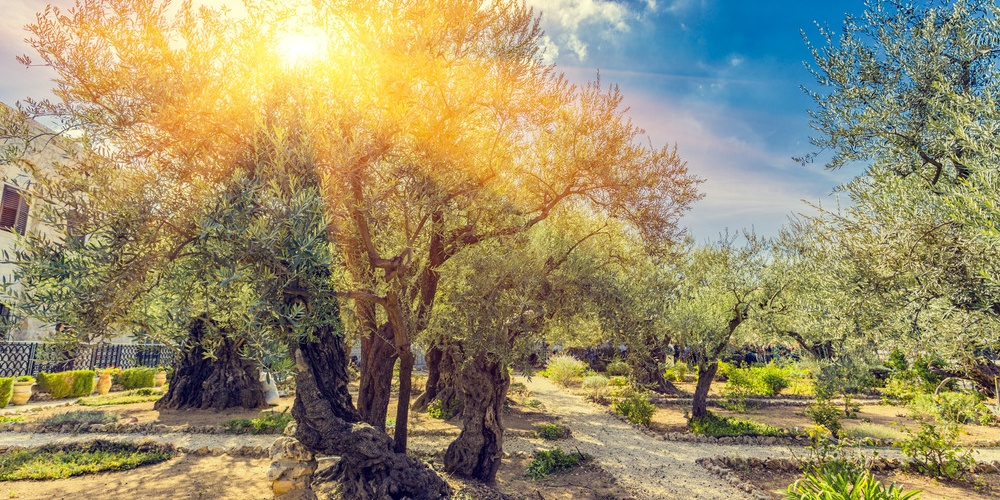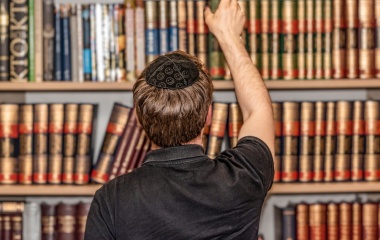
It is fair to say that, if not for the leadership of Rav Yochanan ben Zakkai, you would not be reading these words. Judaism as we know it today could not have survived without his great foresight.
It was he who steered the Jewish people during the Roman siege of Jerusalem and in the aftermath of destruction. Recognizing the futility of trying to defeat the Romans militarily, he urged cooperation and developed positive relations with the Roman rulers. Recognizing the depth of the spiritual rot that had infected the Jewish people, he understood the need to rebuild and refocus Judaism. Simply fixing what was wrong was pretty much impossible. Recognizing that a request to retain a Jewish presence in Jerusalem would be denied, he had the foresight to ask the Romans to grant the Jewish people a little enclave in Yavneh.
He understood that retaining Jerusalem would actually be harmful to the future of Judaism. A spiritual revolution was required, and such could happen only at a new religious centre.
As necessary as this was, this was no easy decision. To say that it was controversial would be a great understatement. Many, including members of his own family, physically fought to prevent such. His rabbinic colleagues were astounded at his decision, with Rabbi Akiva applying to him the verse (Yishayahu 44:25), “Who turns wise men backward, and makes their knowledge foolish” (Gittin 56b).
But if Judaism was to survive and thrive, there was little choice. Yavne was to be the “new Jerusalem” from where Torah and the word of G-d would spread forth. Yet at the same time, Rav Yochanan ben Zakkai worked to ensure that the memory of, and the yearning for, the Temple be front and centre.
“Meshecharav Beit haMikdash, when the Temple was destroyed, Rav Yochanan decreed”…Rabbi Yochanan ben Zakkai enacted a series of takkanot both to help adjust to the new reality and re-create the joy of the Temple wherever we may be as we await its rebuilding. These included Jews the world over taking the lulav for all seven days of Sukkot and allowing the shofar to be blown on Shabbat wherever there was a beit din.
During Temple times, testimony regarding the new moon was not accepted in the afternoon so as to not create uncertainty about the afternoon korbanot. With the Temple destroyed, this was a non-issue and hence, Rabbi Yochanan ben Zakkai allowed testimony regarding the new moon to be accepted up until sunset, turning that day—at the very last minute—into Rosh Chodesh.
It was in order to maintain the feeling that the Temple would soon be rebuilt that he ordained that chadash, the new grain, could not be eaten until the 17th of Nissan. When the Temple was standing, it could be eaten as soon as the korban haomer was brought—early in the morning of the 16th of Nissan—and with the Temple destroyed, it should have been permitted to eat at dawn of the 16th. However, Rav Yochanan ben Zakkai “worried” that next year, the Temple would be rebuilt and people would not know they had to wait for the korban haomer. To prevent this—a mistake dependent on a rebuilt Temple—he ordered all to wait an extra day to eat the new wheat.
While Jewish history has proven the correctness of his view, Rabbi Yochanan ben Zakkai was nonetheless tormented about his decision. How could he not be? He was the one who “gave away” Jerusalem without a fight, who let the Romans do as they pleased with the place where the Divine Presence is most manifest. What if he were wrong?
“When Rabbi Yocḥanan ben Zakkai fell ill, his students entered to visit him. When he saw them, he began to cry. His students said to him: Lamp of Israel, the right pillar, the mighty hammer, for what reason are you crying? He said to them: If they were leading me before a flesh and blood king, who is here today and in the grave tomorrow; if he is angry with me, his anger is not eternal, if he incarcerates me his incarceration is not eternal, if he kills me his killing is not for eternity and I am able to appease him with words and even bribe him with money, and even so I would cry. Now that they are leading me before the supreme King of Kings, the Holy One, Blessed be He, Who lives and endures forever and all time; if He is angry with me, His anger is eternal; if He incarcerates me, His incarceration is eternal; and if He kills me, His killing is for eternity and I am unable to appease Him with words and bribe Him with money. Moreover, I have two paths before me, one of the Garden of Eden and one of Gehenna, and I do not know on which they are leading me; will I not cry?”(Brachot 28b).
Rav Soloveitchik noted that we have stories of many rabbis on their deathbeds, but none of them had such a “fear” of dying. However, none had to make the decision Rav Yochanan ben Zakkai did—one on which the future of Judaism hinged. He had two paths before him: fight for Jerusalem or sacrifice it; join his brothers in fighting the Romans or make peace with the evil enemy. And this decision, once made, was final. How could he not cry?
His students did not respond. What could they say—especially if they actually disagreed with their rebbe’s decision? Instead, they asked their dying teacher to bless them. When he responded, “May it be His will that the fear of Heaven shall be upon you like the fear of flesh and blood”, his students responded, “Is that all?” One surely doesn’t need a person of Rav Yochanan ben Zakkai’s stature to teach us what any kindergarten student knows. Is there not something more profound for one’s dying words? To this, Rav Yochanan ben Zakkai simply responded, “Halevai, if only”. If only man would fear G-d as much as he feared man. “Know that when one commits a transgression, he says: I hope that no man will see me”!
This is an astounding conversation.
Rav Yochanan ben Zakkai was talking to the greatest rabbis of the generation, the likes of Rabbi Eliezer Hagadol, “who is like a plastered cistern which loses not a drop [of Torah]; Rabbi Yossi the Kohen, “a chassid”; Rabbi Shimon ben Netanel, “one who fears sin”; Rabbi Eleazar ben Arach, “who is like a spring that overflows [with Torah]” (Pirkei Avot 2:5). And yet they needed to be reminded to fear G-d as much[1] as they fear man. How simple, how incisive, how profound!
Having used his final wish to teach the most important of teachings,[2] Rav Yochanan ben Zakkai felt at ease.
“At the time of his death, he said to them: “Remove the vessels, lest they be rendered impure, and prepare a chair for Chizkiyahu, the King of Judea, who is coming [to escort me]”. With this greatest of kings escorting him, his place in the world to come was assured. Yet why did Rav Yochanan ben Zakkai specifically envision Chizkiyahu as the one to escort him? Why not Moshe, Rachel, or his teacher Hillel?
Perhaps one can explain that Chizkiyahu was the king who prevented Sancheriv from capturing Jerusalem[3]. He readied to battle to save Jerusalem. He was fearful, but Jerusalem had to be defended. We can be confident that he was correct to do so, because G-d intervened and the war was won without having to fire a shot. While Rav Yochanan ben Zakkai did what seems like the exact opposite, different circumstances call for a different response. Chizkiyahu and Rav Yochanan ben Zakkai would walk hand in hand to their eternal reward. At a crucial historic juncture, the two guided the Jewish people, each in his own separate and most appropriate way.
[1] Rav Yochanan ben Zakkai does not even dare suggest that they fear G-d more than man. Apparently that is a request that is beyond the reach of mere mortals.
[2] Man is all too prone to forget the most basic lessons of life, focusing on “big picture items”. It was Rav Yochanan ben Zakkai himself who, at the same time that he asked the Romans to grant the Jewish people “Yavneh and its wise men” and thereby ensuring the future of Judaism, also asked for a doctor to heal Rabbi Zadok and to save the family of Rabban Gamliel (Gittin 56b). Our work on behalf of the public, even if Jewish history is riding on our decisions, must never come at the expense of caring for the individual.
[3] I thank Dr. Zev Dienna for this insight.



